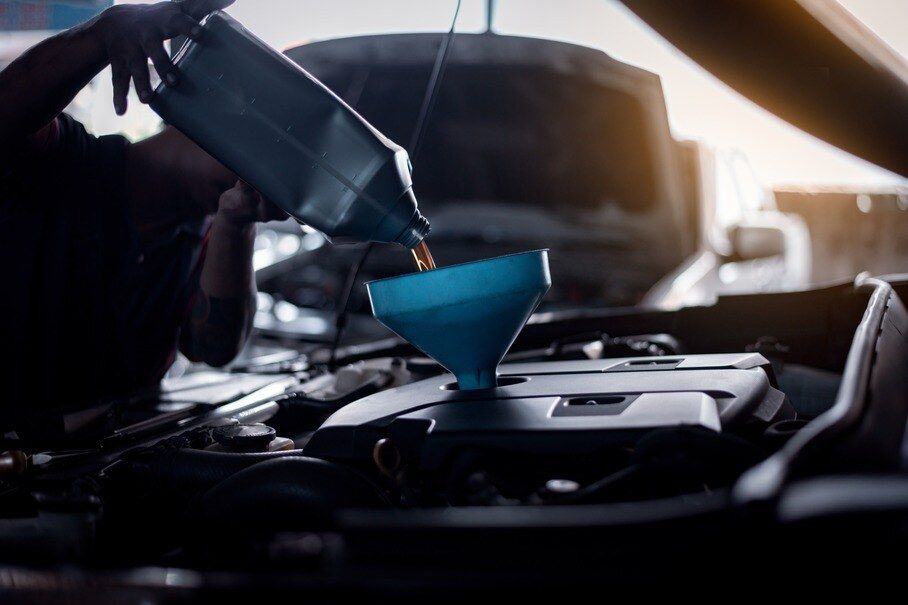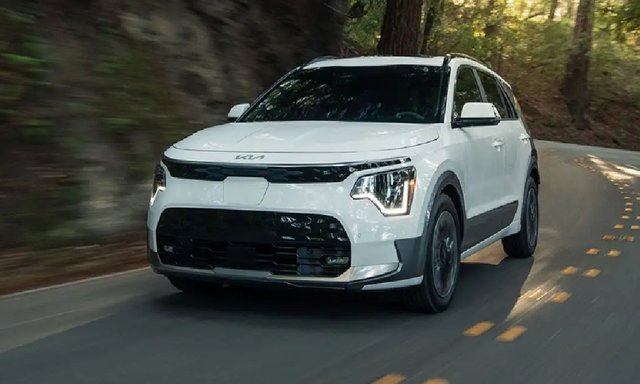Keep your Kia winter-ready with proper fluid maintenance! Get tips to maintain peak performance in the cold and keep your car running smooth
As temperatures drop and winter sets in, Kia owners face unique challenges in maintaining their vehicles. Proper fluid maintenance is one of the most critical aspects of winter car care. The harsh cold can significantly impact various fluids in your Kia, potentially leading to decreased performance, increased wear, and even severe damage if neglected.
Understanding Fluid Viscosity in Cold Temperatures
Fluid viscosity, or the measure of a fluid's resistance to flow, is crucial in how well your Kia performs in cold weather. As temperatures plummet, most fluids in your vehicle tend to thicken or become more viscous. This change can have significant implications for various systems in your Kia.
In winter conditions, thicker fluids can:
- Increase resistance in moving parts
- Reduce the efficiency of systems
- Cause delayed response in critical components
Understanding how cold affects fluid viscosity is the first step in appreciating why proper winter maintenance is crucial for your vehicle. Each fluid in your vehicle has a specific viscosity range in which it performs optimally. When temperatures drop below this range, the fluid may not provide adequate protection or performance.
For Kia owners, this means paying close attention to fluid specifications and ensuring that all fluids in the vehicle are appropriate for the expected temperature range. Many models come with factory-filled fluids suitable for a wide range of temperatures, but switching to winter-specific fluids might be necessary in extremely cold climates.
Engine Oil: The Lifeblood of Your Kia in Winter
Engine oil is often referred to as the lifeblood of any vehicle, and this is especially true for Kia engines in winter. The primary functions of engine oil – lubrication, cooling, and cleaning – become even more critical in cold conditions.
As temperatures drop, conventional engine oils can thicken significantly. This increased viscosity can lead to:
- Difficulty in engine start-up
- Increased wear on engine components
- Reduced fuel efficiency
Kia recommends using winter-grade or multi-grade oils that maintain proper viscosity in cold temperatures to combat these issues. For most modern models, a 5W-30 or 0W-20 synthetic oil is often suitable for winter use, but it's essential to consult your owner's manual for specific recommendations for your model.
Synthetic oils generally perform better in extreme temperatures compared to conventional oils. They maintain their viscosity better in cold starts, providing crucial protection to engine components in those first few moments of operation when most engine wear occurs.
Regular oil changes become even more important in winter. Condensation can build up in the oil, potentially leading to sludge formation if the oil isn't changed frequently enough. Kia typically recommends oil changes every 12,000 km or 12 months, but more frequent changes might be beneficial in severe winter conditions.
Antifreeze/Coolant: Protecting Your Engine from Freezing
While it might seem counterintuitive to worry about engine cooling in winter, antifreeze/coolant plays a crucial role in protecting your engine from the cold. This fluid serves multiple purposes:
- Prevents the cooling system from freezing
- Raises the boiling point of the cooling system
- Protects against corrosion
In winter, the antifreeze properties of this fluid become paramount. If the coolant freezes, it can cause severe damage to your engine, including cracked engine blocks or damaged radiators.
Most Kia vehicles come filled with a 50/50 mix of antifreeze and water, which protects about -37°C. However, a 60/40 mix might be necessary in extremely cold climates, providing protection down to about -54°C.
It's crucial to use the correct type of antifreeze for your Kia. Most modern models use a long-life coolant that's silicate-free and designed to last for up to 5 years or 100,000 km. Using the wrong type of coolant can lead to reduced protection and potential damage to cooling system components.
Regular checks of coolant levels and condition are essential. If the coolant appears dirty or rusty, it's time for a flush and replacement. Also, ensure the coolant is tested for its freezing point before winter sets in. Many Kia dealerships offer this service as part of their winter preparation packages.
Transmission Fluid: Ensuring Smooth Shifts in Icy Conditions
Transmission fluid is vital for the smooth operation of your Kia's gearbox, whether manual or automatic. In winter, transmission fluid faces unique challenges:
- Increased viscosity in cold temperatures
- Potential for moisture contamination
- Increased stress due to frequent gear changes in slippery conditions
Cold fluid can lead to delayed engagement and rough shifting for automatic transmissions. In manual transmissions, cold, thick fluid can make gear changes difficult and increase synchronizer wear.
Most modern vehicles use long-life transmission fluids that perform well in a wide range of temperatures. However, switching to a lower-viscosity fluid might be beneficial in extremely cold climates. Always consult your owner's manual or a certified Kia technician before changing the transmission fluid type.
Regular checks of transmission fluid levels and condition are crucial. If the fluid appears dark or smells burnt, it's time to change. Many models have sealed transmissions that require special procedures for fluid checks and changes, so professional service is often recommended.
Brake Fluid: Maintaining Stopping Power in Sub-Zero Temperatures
Brake fluid is hygroscopic, meaning it absorbs moisture from the air over time. This property becomes particularly problematic in winter for several reasons:
- Moisture in the brake fluid can freeze, potentially causing brake failure
- Water in the fluid lowers its boiling point, which can lead to brake fade
- Moisture promotes corrosion in the brake system
In sub-zero temperatures, it's crucial that your brake fluid is in good condition and free from excessive moisture. Most Kia models use DOT 3 or DOT 4 brake fluid, which has a low freezing point when fresh. However, as the fluid absorbs moisture over time, its freezing point rises.
Kia recommends changing brake fluid every 2 years or 30,000 km, whichever comes first. However, more frequent changes might be beneficial in areas with high humidity or severe winter conditions.
Regular brake fluid checks should include not just level but also condition. If the fluid appears dark or cloudy, it's time for a change. Many Kia dealerships offer brake fluid testing as part of their winter preparation services.
Power Steering Fluid: Keeping Control in Slippery Situations
Power steering fluid ensures smooth and easy steering, which becomes even more critical when navigating icy or snow-covered roads. In winter, power steering fluid can face several challenges:
- Increased viscosity in cold temperatures
- Potential for moisture contamination
- Increased stress due to maneuvering in slippery conditions
Most models use a lifetime power steering fluid that doesn't require regular changes. However, it's still important to regularly check the fluid level and condition, especially before winter sets in.
If the power steering fluid appears dark or has a burnt smell, it might be time for a change. Low fluid levels can lead to increased wear on the power steering pump and potentially cause steering difficulties in cold weather.
For Kia models with electric power steering, there's no fluid to maintain, but it's still important to have the system checked regularly to ensure it's functioning correctly for winter driving.
Windshield Washer Fluid: Visibility is Key in Winter Driving
While often overlooked, windshield washer fluid is crucial for safe winter driving in your vehicle. Regular washer fluid can freeze in cold temperatures, preventing you from clearing your windshield of road grime and salt spray.
For winter use, it's essential to use a washer fluid rated for low temperatures. Winter-specific washer fluids offer protection down to -40°C or even lower. These fluids often contain additives that help break down ice and snow on your windshield.
When filling your washer fluid reservoir for winter:
- Empty the reservoir of any summer washer fluid
- Use a funnel to avoid spills, as winter washer fluid can damage paint
- Don't dilute winter washer fluid with water, as this can raise its freezing point
Carrying extra washer fluid in your Kia during winter trips is a good idea. Visibility can deteriorate quickly in winter driving conditions, and you may use more fluid than expected.
Battery Electrolyte: Cold Weather's Impact on Your Kia's Power Source
While not typically considered a "fluid" in the same sense as oils or coolants, the electrolyte solution in your Kia's battery plays a crucial role in winter performance. Cold temperatures can significantly impact battery performance:
- Reduced chemical reaction speed in the battery
- Increased internal resistance
- Potential for electrolyte freezing in severely discharged batteries
Most modern Kia vehicles use maintenance-free batteries, but checking your battery before winter is important. A battery that's marginal in warm weather may fail completely when temperatures drop.
For models with conventional batteries, checking electrolyte levels is crucial. Low electrolyte levels can lead to reduced performance and potential freezing in extreme cold.
To maintain your battery in winter:
- Keep the battery fully charged; short trips may not fully recharge the battery
- Clean any corrosion from battery terminals
- Consider using a battery blanket in extremely cold climates
- Have the charging system checked to ensure the alternator is providing adequate charge
Keep Your Kia Running Smooth
Proper fluid maintenance is crucial for keeping your Kia running smoothly and safely through the winter months. Each fluid plays a vital role in your vehicle's performance and longevity, from engine oil to battery electrolytes.
Regular checks and timely fluid changes can prevent many cold-weather issues and ensure your vehicle is ready to face winter's challenges. While some maintenance can be done at home, many winter-specific services are best left to trained Kia technicians with the knowledge and equipment to care for your vehicle properly.
Prevention is always better than cure, especially in winter car care. By paying attention to your Kia's fluids and following the manufacturer's recommendations, you can enjoy safe and reliable driving even in the harshest winter conditions.
As you prepare your vehicle for winter, consider scheduling a comprehensive winter maintenance check at your local Kia dealership. Their expert technicians can ensure all fluids are at the correct levels, are in good condition, and are appropriate for the expected temperatures in your area.
With proper fluid maintenance, your Kia will be well-equipped to handle whatever winter throws its way, providing you with safe, comfortable, and reliable transportation throughout the cold season.
To learn more on Kia Maintenance visit Kia.ca






